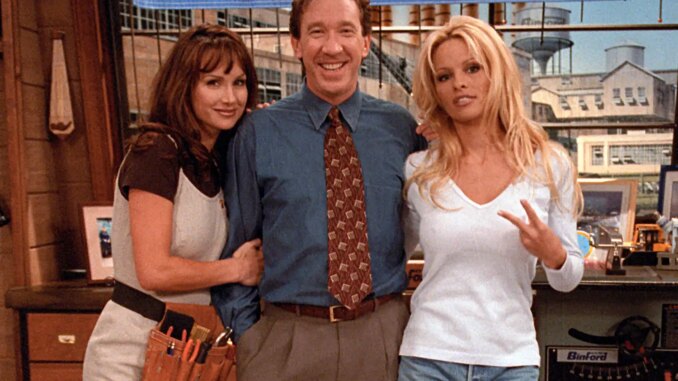
The Tool Time Reunion: A Heartfelt Hum and the Ghosts of Girlhood
The internet, a vast and often unforgiving echo chamber, sometimes throws back unexpected waves of sentimentality. News of Tim Allen proposing Pamela Anderson's return to "Home Improvement" – or rather, its revival – ignited a wildfire of nostalgic longing. But tucked away in the digital forest, away from the roaring debate about reboots and the merits of Anderson's potential involvement, lay a quiet corner: Debbe Dunning's emotional reaction. Her response, imagined or real, felt like a poignant melody strummed on the heartstrings of a generation.
Dunning, the actress who inhabited the role of Heidi, the ever-patient and quick-witted "Tool Time" girl, wasn't just a character; she was a fixture in our living rooms. Her presence was a comforting constant amidst the chaotic energy of Tim Taylor and his well-intentioned blunders. To imagine her confronted with the proposition of Anderson, an icon from a very different era, entering that space felt…complex. It was a collision of past and present, a reminder of how time marches relentlessly onward, leaving echoes of who we were and what we valued in its wake.
Perhaps, in a quiet moment, Dunning found herself gazing at a faded photograph from the "Home Improvement" years. The image, frozen in time, might have depicted a youthful Dunning, bright-eyed and full of promise, standing beside Allen and Richard Karn, the familial trio radiating a familiar warmth. The news of Anderson's potential involvement might have stirred a bittersweet cocktail of emotions. Was it jealousy? No, not necessarily. More likely, it was a pang of recognition – the acknowledgment that the landscape had shifted, that the cultural relevance of "Home Improvement," once a bedrock of family-friendly sitcoms, was now being re-evaluated and potentially redefined.
We can envision Dunning closing her eyes, the hum of the power tools echoing in her memory. That hum wasn’t just a sound; it was a symbol of a simpler time, a time when family values, comedic mishaps, and the comforting rhythm of weekly television held a powerful sway. Heidi wasn't just a face; she was the embodiment of that familiar stability, a steady presence in a world of increasingly fragmented attention spans.
The potential inclusion of Pamela Anderson, a figure synonymous with a different kind of cultural impact, threatened to disrupt that comfortable narrative. It wasn't about casting judgment on Anderson; it was about the potential for diluting the essence of what "Home Improvement" once represented. It was about the fear that the genuine, almost innocent charm of the original might be overshadowed by a more self-aware, perhaps even cynical, approach.
Dunning's emotional reaction, whether expressed publicly or whispered in private, spoke to the inherent vulnerability of art. The characters we create, the stories we tell, become intertwined with our own identities. To see them potentially altered, reimagined, or even replaced can feel like a violation, a tearing away of a piece of oneself.
Ultimately, the decision of whether or not Anderson will grace the "Tool Time" stage is out of Dunning's hands. But her emotional response, imagined and relatable, reminds us that "Home Improvement" wasn’t just a sitcom; it was a shared experience, a collective memory etched in the hearts of millions. And while the future of the franchise remains uncertain, the echoes of the past, the warmth of the laughter, and the hum of those power tools will continue to resonate, a poignant reminder of the girl who stood beside Tim Allen, offering a knowing smile and a steady hand in the face of comedic chaos. Her imagined reaction, then, isn't just about a job; it's about preserving a piece of history, a piece of herself, and a piece of the collective cultural consciousness. It's a heartfelt hum of nostalgia, a subtle lament for the ghosts of girlhood, and a quiet plea to remember the power of genuine connection in a world increasingly dominated by fleeting trends and manufactured drama.